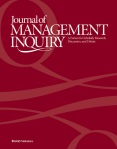The ‘How’ In the Climate Debate
Editor’s note: We are delighted to welcome Andrew Hoffman, the Holcim (US) Professor of Sustainable Enterprise at the University of Michigan’s Ross School of Business and School of Natural Resources and Environment (SNRE) where he is also Director of The Erb Institute for Global Sustainable Enterprise. Professor Hoffman is a leader in using organizational, network and strategic analyses to assess the implications of environmental issues for business. He kindly provided the following commentary on his work and on how social science research can make a difference.
The social debate around climate change is no longer about carbon dioxide and climate models. It is about values, culture, worldviews and ideology. As physical scientists explore the mechanics and implications of anthropogenic climate change, social scientists explore the cultural reasons why people support or reject their scientific conclusions.
 What we find is that scientists do not hold the definitive final word in the public debate on this issue. Instead, the public develops positions that are consistent with the values held by others within the referent groups of which they are part. In this context, efforts to present ever increasing amounts of data, without attending to the deeper values that are threatened by the conclusions they lead to, will only yield greater resistance and make a social consensus even more elusive.
What we find is that scientists do not hold the definitive final word in the public debate on this issue. Instead, the public develops positions that are consistent with the values held by others within the referent groups of which they are part. In this context, efforts to present ever increasing amounts of data, without attending to the deeper values that are threatened by the conclusions they lead to, will only yield greater resistance and make a social consensus even more elusive.
Academic research focused on business decision-making, firm behavior, and the protection of the natural en vironment began as a modest off shoot of management research in the late 1980s and has grown into a maturing area of study within the management sciences, encompassing a wide range of disciplines. And now, with the established body of literature that has been built, it is possible to step back and view the state of this field in terms of where it has been and where it is going.
vironment began as a modest off shoot of management research in the late 1980s and has grown into a maturing area of study within the management sciences, encompassing a wide range of disciplines. And now, with the established body of literature that has been built, it is possible to step back and view the state of this field in terms of where it has been and where it is going.
It is now possible to consider in broad terms the history of B&NE, the central themes in the field as they exist today and where are the fruitful areas of future research. This can be helpful for both senior members of the field as well as new and junior members to explore the full range of the research domain as well as its individual pieces.
 Don’t miss these related publications by Professor Hoffman, winner of the Journal of Management Inquiry “Breaking the Frame” award for “The BP Oil Spill as a Cultural Anomaly? Institutional Context, Conflict, and Change,” co-authored by P. Devereaux Jennings.
Don’t miss these related publications by Professor Hoffman, winner of the Journal of Management Inquiry “Breaking the Frame” award for “The BP Oil Spill as a Cultural Anomaly? Institutional Context, Conflict, and Change,” co-authored by P. Devereaux Jennings.
Business and the Natural Environment
The Oxford Handbook of Business and the Natural Environment
Climate Science as Culture War
The Social and Psychological Foundations of Climate Change




























































































